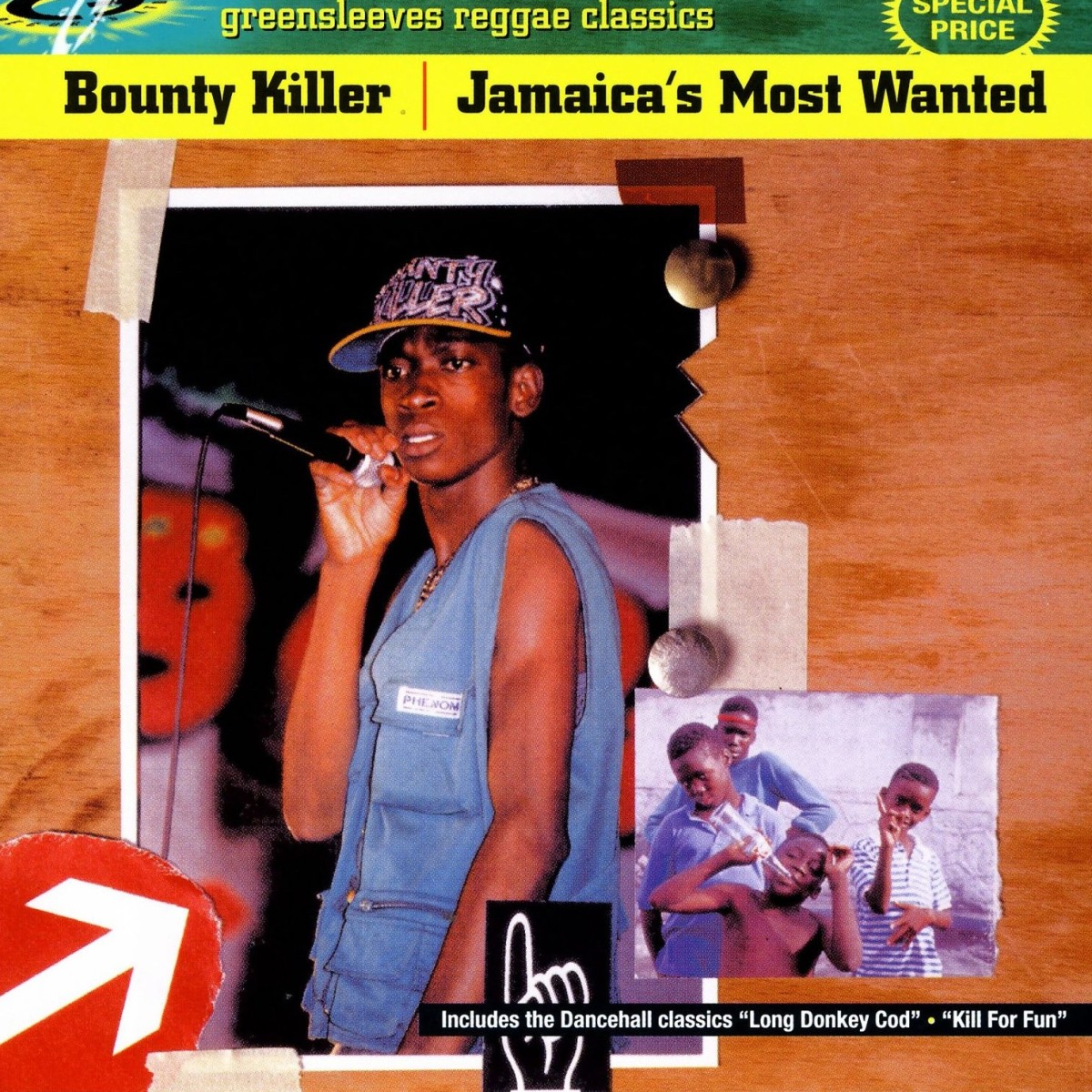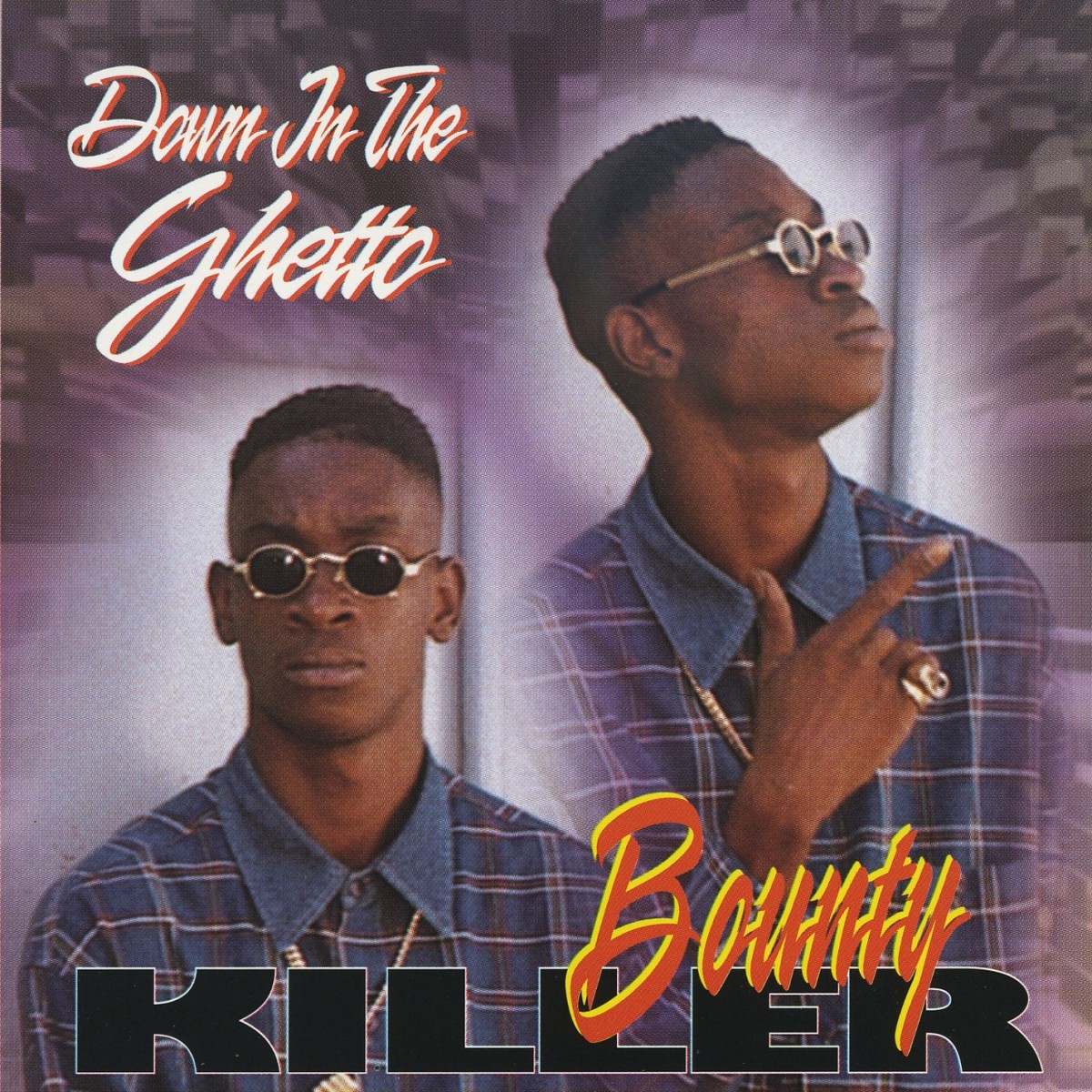Bounty Killer’s debut album Jamaica’s Most Wanted, which was laced with firearm imagery, had resulted in Rastafarian artists Garnett Silk and Luciano refusing to perform on any show where the Warlord was scheduled to appear.
The 15-track Jamaica’s Most Wanted, released under the King Jammys label in 1993, consisted of eight gun songs: Kill For Fun, Gun Thirsty, his breakout single Coppershot, Disrespect, Spy Fi Die, New Gun, and Dub Fi Dub. The album was later released overseas under the title Roots, Reality, and Culture.
“And dem time deh now, when we put out da first album deh, di Rasta dem start bun mi out,” Bounty had recalled in a Teach Dem interview. “Luciano dem an Garnett Silk dem, a seh dem naw do nuh show wid no man weh a sing bout no gun an dem suppm deh.”
However, according to Bounty, he did not take offense, as he understood the Reggae artists’ concerns and thought they were valid, as he himself had started out in the music industry as a cultural artist and only started churning out gun songs after seeing the reception his “people dead” slang received from his Jamaican compatriots.
“Dem did a pressure wi seh dem nuh want do no show wid no man weh a sing no gun ting. And mi neva teck it di wrong way. Mi jus seh ‘mek mi sing some good cultural song too’, becaw me sing ‘people dead’ and mi si everybaddy a excited, mi think a it mi fi do,” he explained.
“Yeah, suh a suh me guh suh now an seh ‘awrite, weh dem seh dem want? A jus guh start back fi mi culture song dem. A culture song first me a practice when me a deejay caw me neva know bout bad man deejaying. A late afta gansta hard core ting come een. Suh it was a cultural ting every man as a deejay [initially],” he said.
The Living Dangerously artist said that for his sophomore album, which he released a few months later, he drew for a slew of reality songs and “God” songs to showcase his versatility.
“Suh mi start guh back fi mi Lord Is My Light My Salvation, and den (Angel) Doolas write di Book Book Book, and wi start guh dung inna di culture ting, an wi start gi dem di Poor People Fed up ting an Down inna di Ghetto and show seh wi have cultural thoughts too… ‘Awrite, hol some culture inna oonu belly den. Me have di balance’”, he recounted.
Down in the Ghetto, which was also produced by King Jammys, featured 14 tracks, including Inspired by God, Defend the Poor, Dead this Time, Smoke Herb, and Gun Chat featuring Angel Doolas and Nitty Kutchie, which consisted of lyrics that rebuked marauding gunmen. However, it still contained a few gun songs, among them See You No More and If A War.
In an I Never Knew TV interview last year, Bounty said that Luciano and Garnet Silk’s criticisms did not force him to record Down in the Ghetto but pushed him to revert to what he described as his “real catalogue.”
“It never pushed me to record it. It pushed me to take up back my real catalogue, because the first song I recorded for Uncle T when I went to Jammys studio was a song name ‘yuh si di gun enuh a long time it fi done and if yh love yuh life, you woulda pudding di gun’. Where I learnt to deejay with Blacka Welsh and Johnny Marshall, they are cultural artistes. The first time I Iearn to deejay it was culture music wi a sing…,” he said.
He had explained further that the rebukes by the elders had come after fellow deejay Panhead was killed by gunmen in 1994, resulting in Buju Banton releasing the song Murderer condemning the killers.
“The whole industry was hurt after Panhead died… so when mi a she Mi Gun Nuh Join Lodge, is like mi a celebrate these gunmen who killed our fellow artiste…,” Bounty said.
He had also described Luciano and Garnett Silk’s rebuke as a “positive critique”, as out of that situation, his ensuing songs resulted in him being bestowed with the title of “Poor People Governor”, which remains an even more revered title than “The Warlord”.
Bounty also said his first song, which advocated for men to lay down their arms, did not give him the desired attention, but the gun-promoting lyrics did.
“So when I said ‘people dead’, excitement started so I thought this is what they wanted not even thinking that it was not the best thing… I was just craving the excitement and the attention,” he explained.

 7 months ago
92
7 months ago
92


 English (US) ·
English (US) ·